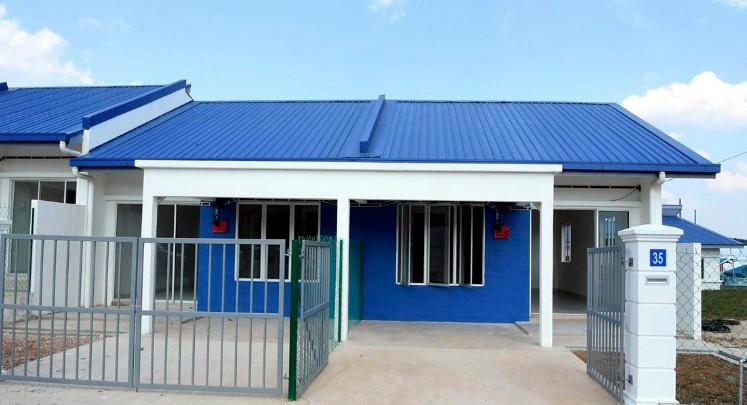KUALA LUMPUR: The Real Estate and Housing Developers’ Association Malaysia (REHDA) believes that the salary hike for civil servants this December could lead to more opportunities for the group to purchase properties.
REHDA president Datuk NK Tong said while the rising cost of living and building materials continue to affect affordability for people and developers, news of civil servants’ salary increases may have provided some relief.
“Besides, for employees contributing to the Employees’ Provident Fund (EPF), despite some concerns about the restructuring of contributors’ accounts, in which Account 1 has been increased to 75 per cent, would-be homebuyers still have up 25 per cent of their savings to be used to buy their dream home, in their Accounts 2 and 3,” he told Bernama.
Tong mentioned that although the proposed salary increase may not immediately alleviate the issue of unaffordable housing in Malaysia, REHDA hopes it will have a positive ripple effect on the industry and the nation in the long run.
Asked about how developers are managing rising building costs, he said it is up to developers to be innovative.
ALSO READ: Malaysian real estate sector’s growth to continue this year: Expert
“They could continue to lower their margins to absorb the cost which has increased tremendously over the years.
“The weakening of the ringgit could result in higher prices for buyers but substitution with equally durable materials is another option. You will start to see units becoming a bit more compact because it makes more financial sense for developers in terms of construction,” said Tong.
He added that compliance cost is another ongoing issue which includes delays in approvals.
Compliance costs include the time and expenses incurred by developers to conform with government policies, legislation and regulations which increases the cost of doing business.
Tong explained that with the inevitable rising energy cost globally, which is the prime input to building materials, compliance costs should at least be reduced, without compromising any regulations and laws.
DEVELOPERS CANNOT AFFORD TO DISAPPOINT CUSTOMERS
Commenting on some cases where buyers were dissatisfied with their newly bought property due to poor quality materials and workmanship, Tong said that not all developers are good and buyers may encounter some bad and ugly ones.
“If we (developers) want to be in business in the long run, we cannot afford to disappoint customers. Buyers have the right to take sellers to court for restitution if they have been wronged.
ALSO READ: Challenges persist in Malaysia’s real estate market despite dominance of residential properties
“They should be more discerning about buying property from reputable developers with an established track record. If not, buyers should look out for the secondary market (formerly held units or existing buildings) because what they see is what they get,” said Tong.
About 85 per cent of transactions every year are done in the secondary market, he added.
IBS STILL NOT THE PREFERRED WAY FORWARD FOR PRIVATE PROJECTS
Meanwhile, despite the country having some trouble training new sets of foreign labour in the industry after the Covid-19 pandemic, the industrialised building system (IBS) has not been appealing enough for developers.
Tong said this is simply because Malaysia still does not have the economy of scale to carry out the system.
ALSO READ: KPKT to introduce new public housing model
“IBS will certainly improve quality and nice to be adopted, but it will be more expensive for now because we need to standardise and add volume.
“Probably government projects are most conducive for IBS because they do thousands of units and it is always the same, for example, the Projek Perumahan Rakyat flats, assuming that they have a standard design,” he said.
However, inadequate use of IBS to cater to lower volume would lead to prices increasing, Tong cautioned.










